Josh Andres
AutoDS: Towards Human-Centered Automation of Data Science
Jan 13, 2021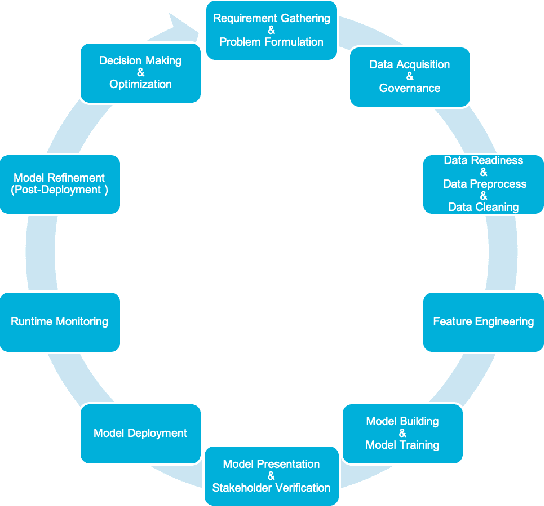
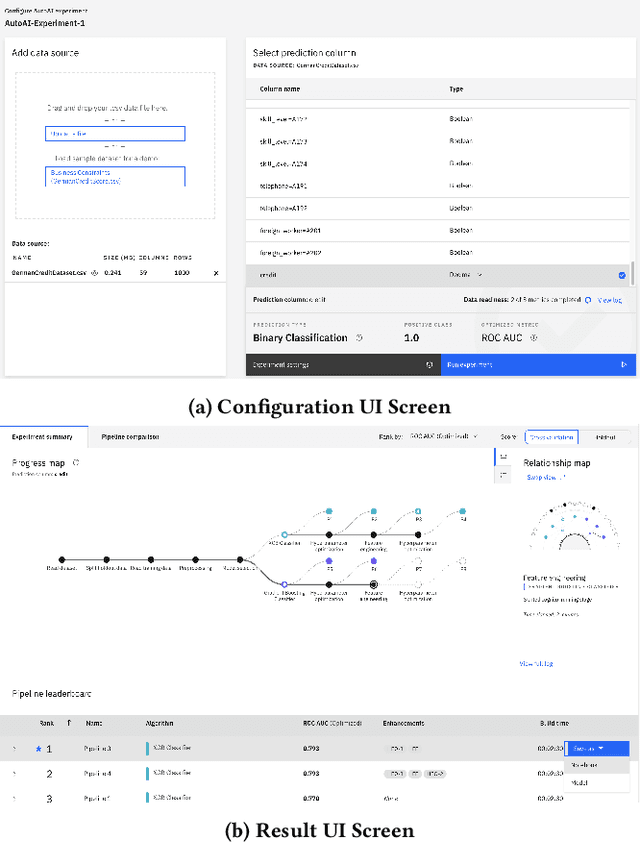

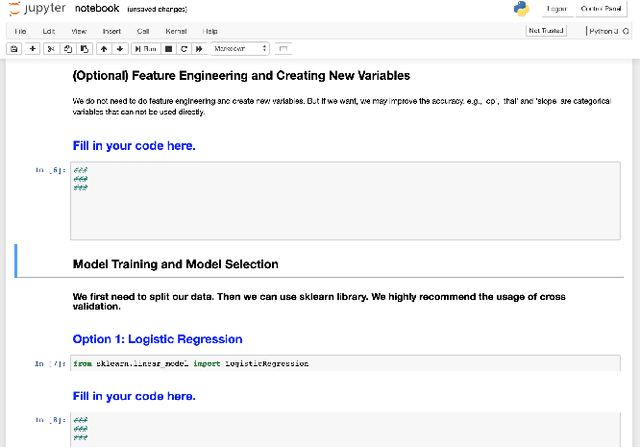
Abstract:Data science (DS) projects often follow a lifecycle that consists of laborious tasks for data scientists and domain experts (e.g., data exploration, model training, etc.). Only till recently, machine learning(ML) researchers have developed promising automation techniques to aid data workers in these tasks. This paper introduces AutoDS, an automated machine learning (AutoML) system that aims to leverage the latest ML automation techniques to support data science projects. Data workers only need to upload their dataset, then the system can automatically suggest ML configurations, preprocess data, select algorithm, and train the model. These suggestions are presented to the user via a web-based graphical user interface and a notebook-based programming user interface. We studied AutoDS with 30 professional data scientists, where one group used AutoDS, and the other did not, to complete a data science project. As expected, AutoDS improves productivity; Yet surprisingly, we find that the models produced by the AutoDS group have higher quality and less errors, but lower human confidence scores. We reflect on the findings by presenting design implications for incorporating automation techniques into human work in the data science lifecycle.
AutoAIViz: Opening the Blackbox of Automated Artificial Intelligence with Conditional Parallel Coordinates
Jan 17, 2020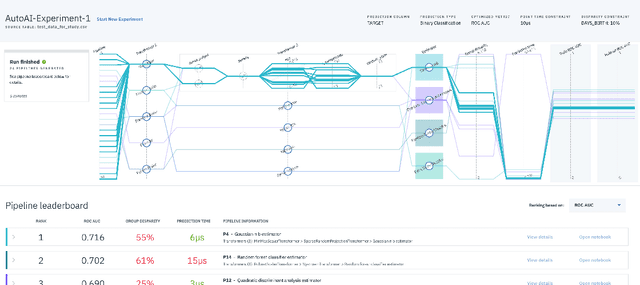
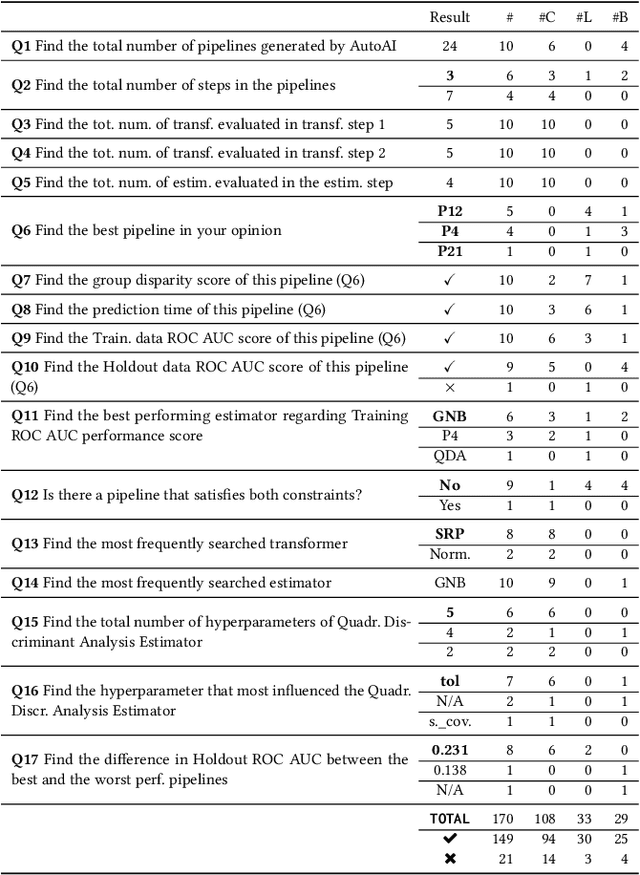
Abstract:Artificial Intelligence (AI) can now automate the algorithm selection, feature engineering, and hyperparameter tuning steps in a machine learning workflow. Commonly known as AutoML or AutoAI, these technologies aim to relieve data scientists from the tedious manual work. However, today's AutoAI systems often present only limited to no information about the process of how they select and generate model results. Thus, users often do not understand the process, neither do they trust the outputs. In this short paper, we provide a first user evaluation by 10 data scientists of an experimental system, AutoAIViz, that aims to visualize AutoAI's model generation process. We find that the proposed system helps users to complete the data science tasks, and increases their understanding, toward the goal of increasing trust in the AutoAI system.
Towards a Predictive Patent Analytics and Evaluation Platform
Oct 31, 2019
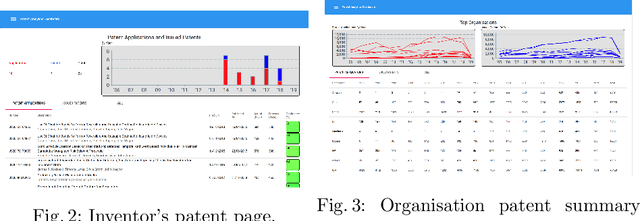
Abstract:The importance of patents is well recognised across many regions of the world. Many patent mining systems have been proposed, but with limited predictive capabilities. In this demo, we showcase how predictive algorithms leveraging the state-of-the-art machine learning and deep learning techniques can be used to improve understanding of patents for inventors, patent evaluators, and business analysts alike. Our demo video is available at http://ibm.biz/ecml2019-demo-patent-analytics
 Add to Chrome
Add to Chrome Add to Firefox
Add to Firefox Add to Edge
Add to Edge